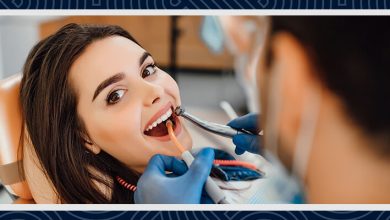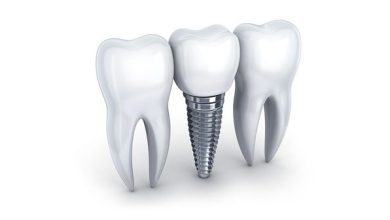What Causes Dental Caries : Unveiling the Culprits Behind Tooth Decay
Dental caries are caused by the accumulation of plaque and bacteria on the teeth, which produces acids that erode the tooth enamel. Dental caries, commonly known as tooth decay, is a prevalent oral health problem that affects people of all ages.
It occurs when plaque, a sticky film of bacteria, builds up on the tooth surface. Bacteria in the plaque feed on sugars from food and produce acids as a byproduct. These acids gradually wear down the protective enamel layer of the teeth, leading to the formation of cavities or holes.
If left untreated, dental caries can cause tooth sensitivity, pain, infection, and even tooth loss. Understanding the causes of dental caries is essential to prevent and manage this common dental issue.
Understanding Dental Caries: A Closer Look At Tooth Decay
Dental caries, also known as tooth decay, is a common oral health problem affecting people worldwide. It is characterized by the demineralization of the tooth structure caused by acid-producing bacteria. Dental caries refers to the process of tooth decay, which starts with the formation of plaque on the tooth’s surface. Plaque is a sticky film made up of bacteria, saliva, and food particles that accumulate on teeth.
Dental caries is a prevalent issue globally, with individuals of all ages affected. According to the World Health Organization, dental caries is one of the most common non-communicable diseases, affecting 60-90% of school-age children and the majority of adults. Its impact is significant, leading to toothache, cavities, tooth loss, and even systemic health issues in severe cases. The global burden of dental caries not only contributes to individual discomfort but also poses economic challenges for healthcare systems.
| Fact | Statistic |
|---|---|
| Prevalence of dental caries in children | 60-90% |
| Prevalence of dental caries in adults | Majority |
It is crucial to understand the causes and risk factors associated with dental caries to effectively prevent and manage this oral health concern. By promoting good oral hygiene practices, regular dental check-ups, and a balanced diet, individuals can take proactive measures to maintain healthy teeth and prevent the onset of dental caries.
Revisiting The Role Of Causal Factors In Dental Caries
Dental caries, commonly known as tooth decay, is a widespread oral health concern. The primary culprit behind dental caries is sugar. Regular consumption of sugar contributes to the development of dental caries as it fuels the growth of harmful bacteria in the mouth. Various types of sugars, including sucrose, fructose, and glucose, play a significant role in promoting tooth decay.
High sugar foods and drinks should be limited to maintain dental health. Foods such as candies, sodas, cakes, and cookies contain high levels of sugar and pose a higher risk to dental health.
Dental erosion, another factor leading to dental caries, occurs due to acidic attacks on tooth enamel. Acidic foods and drinks, such as citrus fruits, carbonated beverages, and vinegar, erode the enamel over time, making teeth more vulnerable to decay.
To protect teeth from acid attacks, it is beneficial to rinse with water after consuming acidic substances and wait at least 30 minutes before brushing. Implementing good oral hygiene habits such as regular brushing and flossing is crucial in preventing dental caries. Avoiding common mistakes in oral hygiene routines like vigorous brushing or neglecting to clean interdental spaces is important for maintaining optimal oral health.
By taking these preventative measures and incorporating proper dental care tips into your routine, you can effectively minimize the risk of dental caries and ensure a healthy smile.
Beyond Brushing: The Environmental Factors Influencing Dental Caries
Understanding the genetic susceptibility to tooth decay is crucial in preventing and managing dental caries. Certain genes have been identified to affect dental health, and individuals with genetic predispositions require tailored oral care strategies. By recognizing the role of Streptococcus mutans in tooth decay, effective prevention strategies can be implemented. S. mutans is a bacterium that invades the oral cavity, leading to dental caries. Reducing the colonization of S. mutans and adopting oral hygiene practices can minimize the risk of tooth decay. Dental health is also greatly influenced by diet and nutrition. Nutritional factors that contribute to dental caries risk should be identified, and a balanced diet should be maintained to promote healthy teeth. Certain foods and nutrients can even enhance dental health. By considering these environmental factors, a holistic approach to dental care can be adopted.
| Role of Genetics in Dental Caries |
|---|
| – Understanding the genetic susceptibility to tooth decay |
| – Genes that affect dental health and their implications |
| – Oral care strategies for individuals with genetic predispositions |
| Bacterial Invasion: Streptococcus Mutans and Dental Caries |
| – Insight into the role of Streptococcus mutans in tooth decay |
| – Transmission and colonization of S. mutans in the oral cavity |
| – Strategies to reduce S. mutans and prevent dental caries |
| Impact of Diet and Nutrition on Dental Health |
| – Nutritional factors that contribute to dental caries risk |
| – Importance of a balanced diet for maintaining healthy teeth |
| – Foods and nutrients that promote dental health |

Credit: smileangels.com
Unveiling Modern Preventive And Treatment Approaches For Dental Caries
Understanding the role of fluoride in preventing dental caries: Fluoride plays a crucial role in preventing dental caries by strengthening the tooth enamel and making it more resistant to acid attacks.
Fluoride supplementation and community water fluoridation: Fluoride can be obtained through various sources, including fluoride supplements and community water fluoridation programs. These initiatives aim to optimize fluoride levels in the body for optimal dental health.
Other sources of fluoride for optimal dental health: In addition to supplements and fluoridated water, fluoride can also be obtained from toothpaste, mouth rinses, and professionally applied fluoride treatments, which further enhance its preventive effects.
Dental sealants: Shielding Teeth from Decay: Dental sealants offer an effective way to protect teeth from decay by creating a physical barrier on the chewing surfaces.
Explanation of dental sealants and their effectiveness: Dental sealants are thin coatings made of plastic that are applied to the pits and fissures of teeth, sealing them off from harmful bacteria and food particles, consequently reducing the risk of cavities.
Procedure for applying dental sealants: The application of dental sealants involves thoroughly cleaning the teeth, etching the surface with a solution, and then applying the sealant material, which is later hardened with a curing light.
Benefits and limitations of dental sealants: Dental sealants can provide long-term protection against dental caries, especially for children and teenagers. However, it is important to note that sealants only protect the chewing surfaces and are not a substitute for proper oral hygiene practices.
Holistic approaches to preventing dental caries: In addition to conventional methods, holistic approaches to preventing dental caries emphasize natural remedies and alternative practices to maintain dental health.
The power of natural remedies in maintaining dental health: Natural remedies such as oil pulling, herbal rinses, and homemade toothpaste can be beneficial in reducing plaque and maintaining oral health.
Alternative practices and their impact on tooth decay prevention: Practices like acupuncture, Ayurvedic medicine, and homeopathy can complement traditional dental treatments for a holistic approach to preventing tooth decay.
Integrative methods for addressing dental caries: Integrative methods combine conventional dentistry with complementary therapies to prevent dental caries and promote overall oral health.
Frequently Asked Questions For What Causes Dental Caries
What Are The Main Causes Of Dental Caries?
Poor oral hygiene, excessive sugar consumption, and a lack of fluoride exposure are the main causes of dental caries.
What Are The 4 Factors Of Dental Caries?
The four factors of dental caries are bacteria, sugar, time, and a susceptible tooth surface. Bacteria in the mouth produce acids when they digest sugar, which then react with the tooth surface over time, leading to decay.
Can Dental Caries Be Cured?
Yes, dental caries can be cured through dental treatments like fillings or root canals to remove the decayed area and restore the tooth. Regular dental check-ups and proper oral hygiene can prevent caries.
How Do You Get Rid Of Dental Caries?
To get rid of dental caries, follow a good oral hygiene routine: brush your teeth twice a day using fluoride toothpaste, floss daily, and visit your dentist regularly for check-ups and cleanings. Limit sugary foods and drinks, and consider dental sealants and fluoride treatments.
Conclusion
To sum up, dental caries is a common oral health issue affecting people of all ages. It is primarily caused by the interaction of bacteria, sugars, and the tooth’s structure. Poor oral hygiene, high sugar intake, frequent snacking, and lack of fluoride are major contributing factors.
Regular brushing, flossing, and dental check-ups, along with a balanced diet, are key to preventing dental caries. By taking proactive measures, we can maintain a healthy smile and prevent the detrimental effects of tooth decay.





